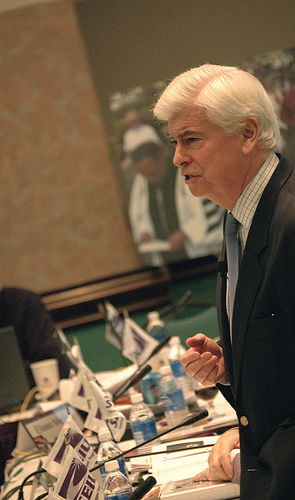An overwhelming number of senators from both parties passed the first major amendment on financial regulatory reform this afternoon, making substantial changes to how too-big-to-fail banks are liquidated when they fail. The vote was 93 to 5, with Sen. Byron Dorgan (D-ND), a staunch supporter of reform, the only Democrat to vote against it. The Dodd-Shelby amendment, named for senators Chris Dodd (D-Conn.) and Richard Shelby (R-Ala.), replaces the previous proposal—that a $50 billion fund be created to pay for the orderly euthanization of Citigroup-like megabanks—with a provision giving the Federal Deposit Insurance Corporation the power to wind down these banks. (The FDIC already takes over and winds down small to medium sized banks.)
The Dodd-Shelby amendment mandates several more new rules. Shareholders who receive government money in a bank’s wind-down will be forced to pay back any funds exceeding what they would’ve received had the bank simply been liquidated. The Federal Reserve will only be allowed to use its emergency lending powers with banks who are still solvent, and not failed. Finally, the amendment, if it remains untouched and the bill passes, will give regulators the power to ban top executives and directors of failed banks from again working in the financial sector, a proposal sure to draw ire of Wall Street and its phalanx of lobbyists.
Earlier this afternoon, the Senate also passed the Boxer amendment, which explicitly says that taxpayers will never again be on the hook for future bailouts or support to struggling megabanks. That amendment also passed with near-unanimous backing from both parties.















